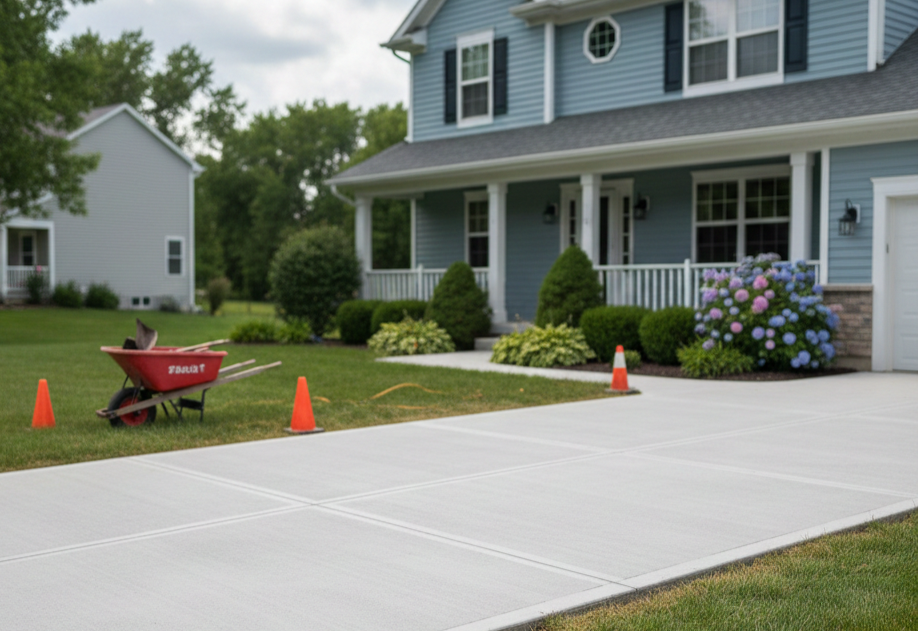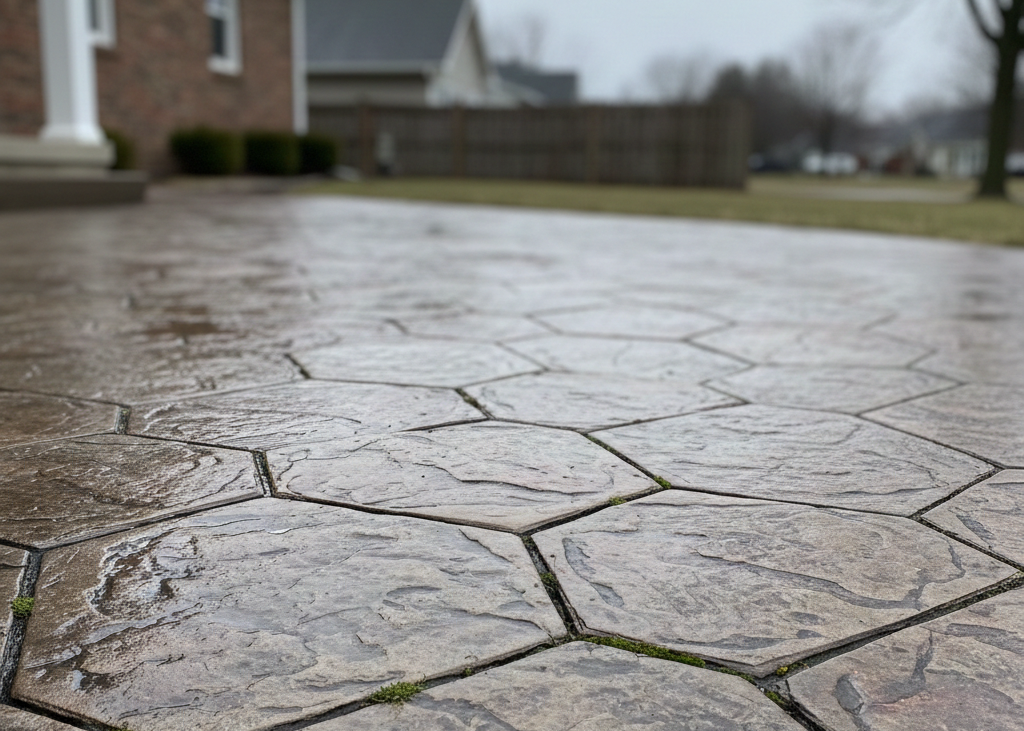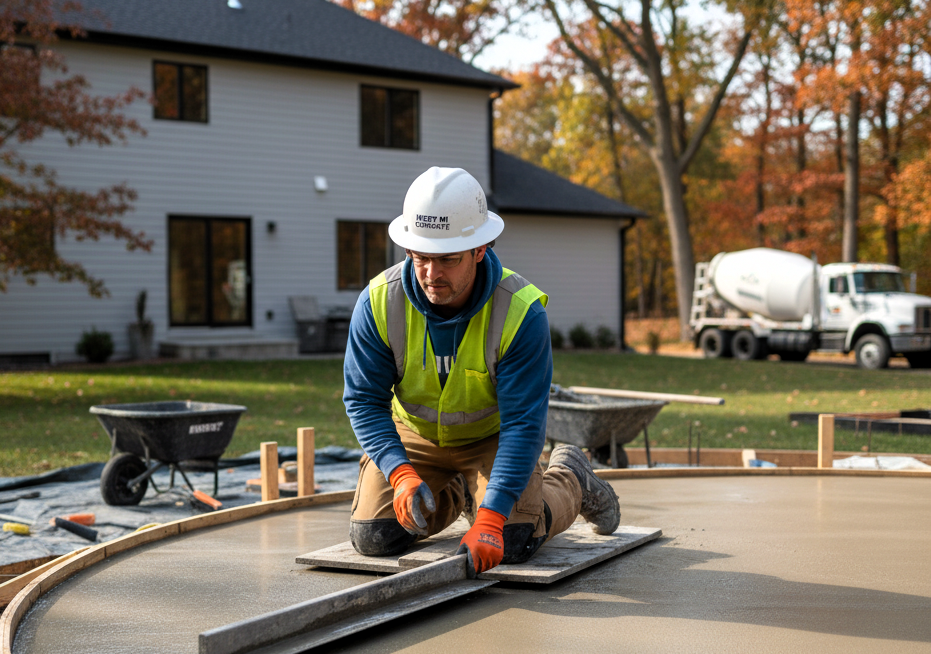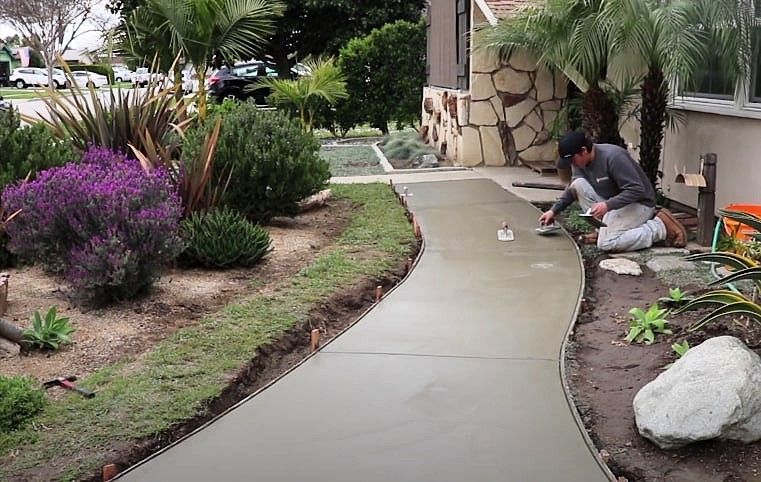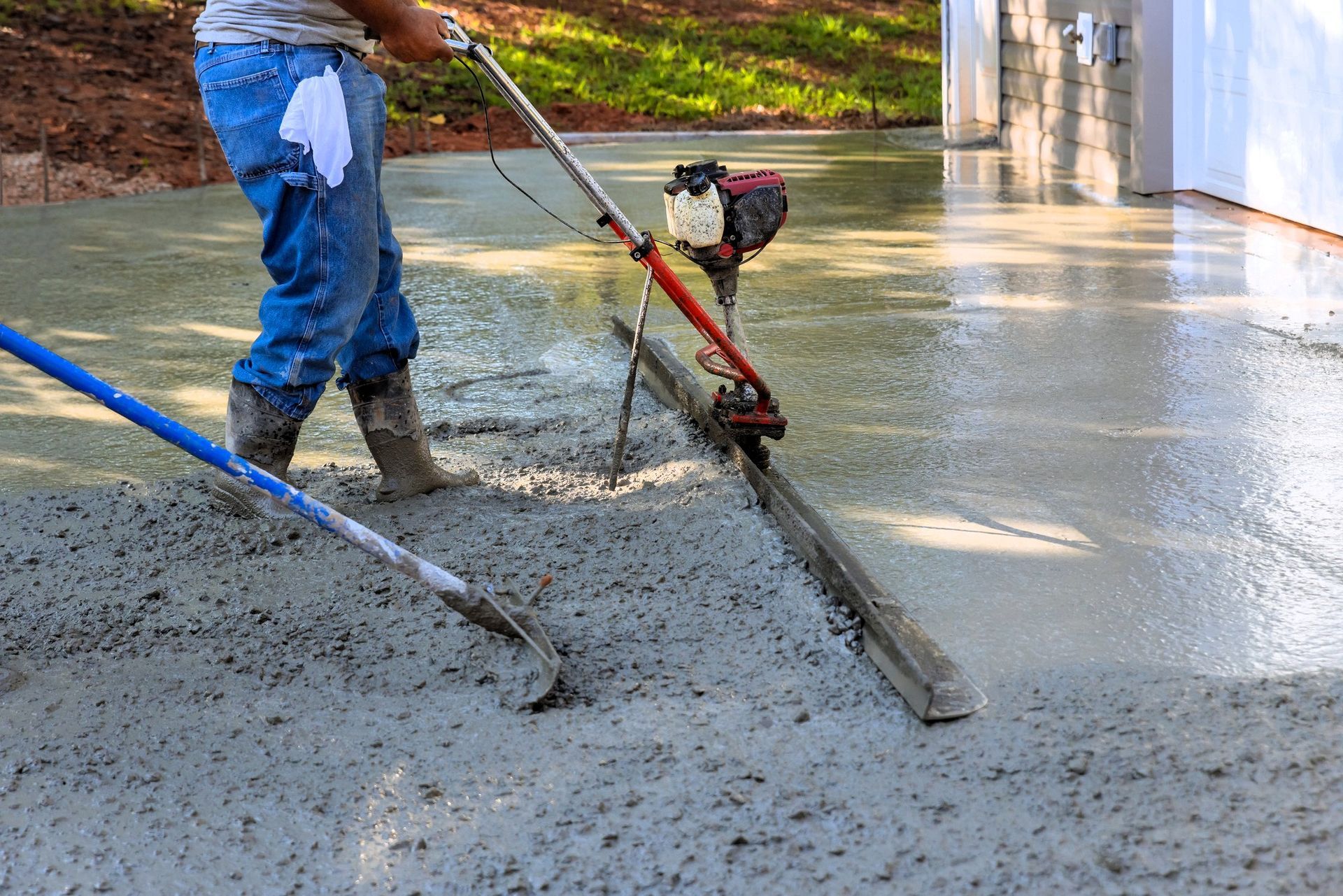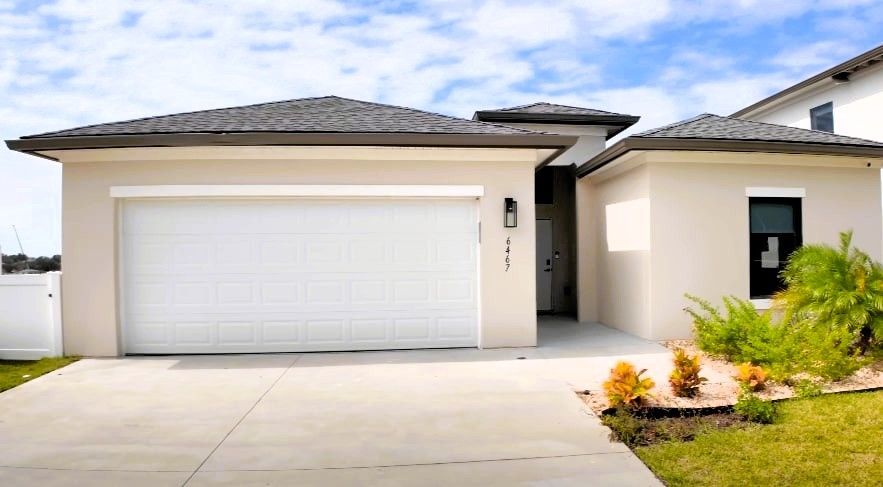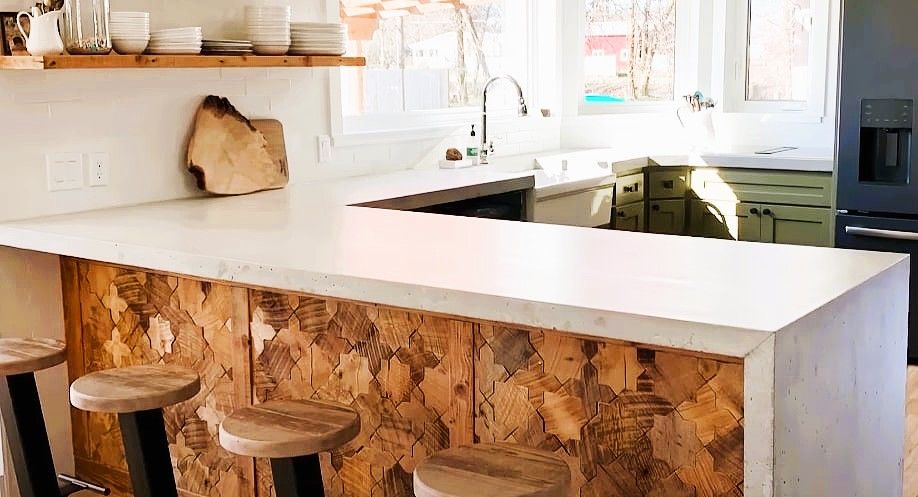How Thick Should a Concrete Driveway Be? (And Why It Matters)
Essential guide to concrete driveway thickness and what affects it
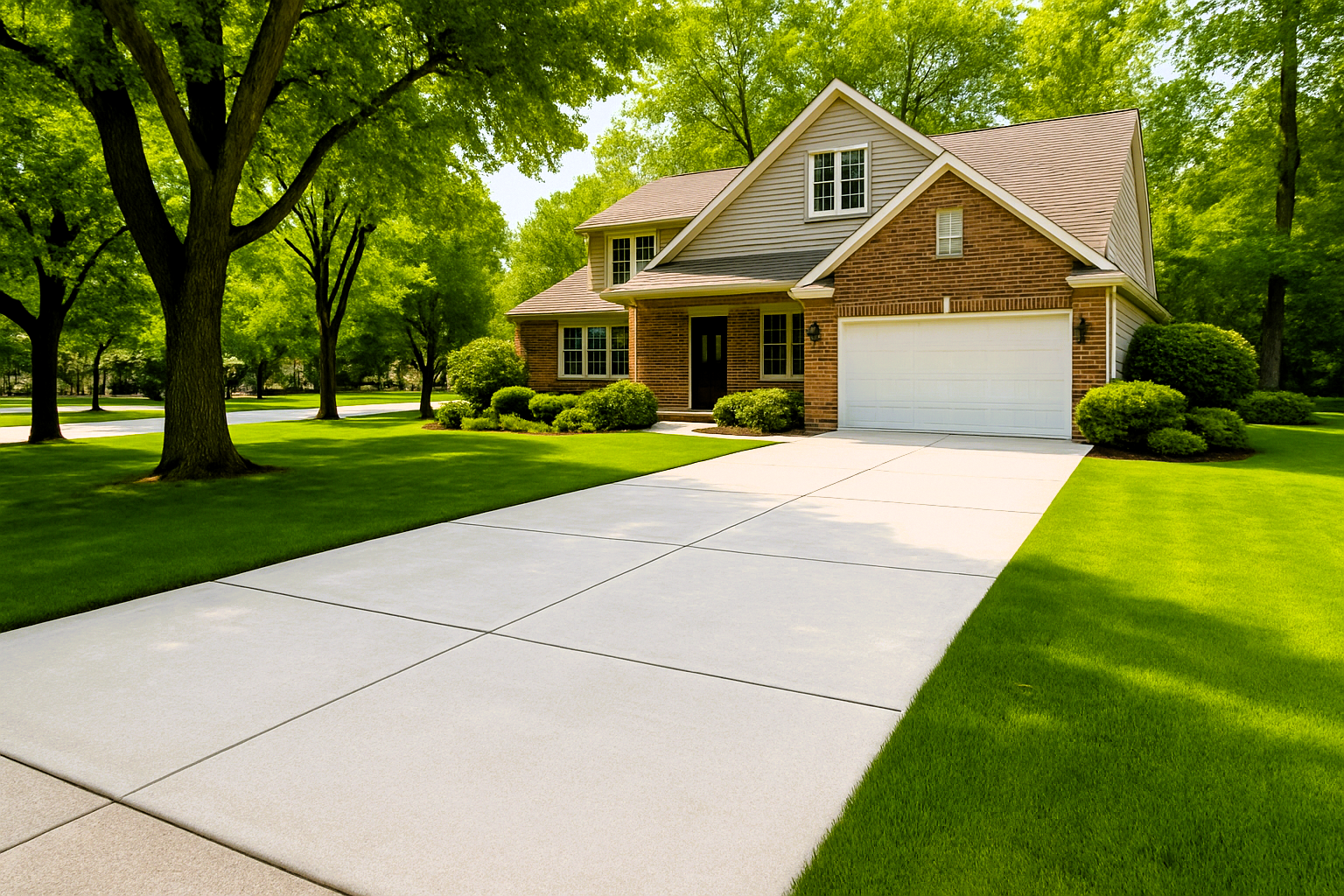
A concrete driveway isn’t just a place to park—it’s an important part of your home’s character and practicality. When done right, it can enhance curb appeal and last for decades. When done wrong, though, it can turn into a headache of expensive fixes.
The thickness of your driveway plays a big role in how well it holds up over time. But how do you figure out the right thickness for your needs? In this guide, we’ll dive into what thickness works best, why it’s so important, and the key factors to keep in mind. Plus, we’ll share tips to help your driveway stay strong for years to come!
Standard Thickness Recommendations
Driveways Built for Your Home
For most residential driveways, a good rule of thumb is to aim for a thickness of about 4 to 6 inches: sturdy enough to handle daily use without overdoing it.
- For most regular cars, about 4 inches of thickness does the trick.
- If your driveway sees more action—like RVs or several parked cars at once—go for 5 to 6 inches to keep it sturdy.
For most homeowners, a 4-inch driveway does the job. But if you’re expecting heavier vehicles, adding an extra inch or two can make a big difference in durability and keep your driveway going strong for years.
Driveways Built for Business and Heavy Traffic
For businesses or properties requiring heavy-duty driveways, the standards rise:
- 6 to 8 inches (or more) is the norm, especially in areas where the driveway will regularly support large trucks or heavy machinery.
These thicker slabs can bear much heavier loads without failing prematurely, making them ideal for high-traffic zones.
Why Thickness Matters
Load-Bearing Capacity
Making sure your driveway is thick enough is key to handling weight properly. Think about it—something like a fully-loaded RV can put thousands of pounds of pressure on the surface. If the slab isn’t thick enough, it’s only a matter of time before cracks or damage show up.
Durability & Longevity
A solid driveway starts with the right thickness. Thin slabs are more likely to crack, settle, or wear down, especially with heavy use. Building your driveway with the proper thickness means it’ll stay strong and durable, saving you from future headaches and repairs.
Cost Efficiency Over Time
Cutting corners on driveway thickness might save you a little money upfront, but it can come back to bite you later. Thinner driveways are more likely to crack and need repairs, meaning more time, money, and headaches down the road. Investing a bit more in the right thickness now can save you from costly fixes and replacements in the future.
Key Factors Affecting Driveway Thickness
Getting your driveway just right isn't as simple as sticking to basic thickness guidelines. There’s a lot more to it—different factors can change what works best for your slab.
Soil Conditions
- Clay Soil: Known for its tendency to swell and shrink, clay can be tricky to work with. For better stability, go for a thicker slab—around 5 to 6 inches should do the job.
- Sandy Soil: Drains water well and offers solid support, so 4 inches is usually all you need.
The type of soil beneath your driveway has a huge impact on how stable the slab will be over time. Chatting with a local contractor can help you figure out if adding some extra thickness is the way to go.
Climate
If you live in a colder area where freezing and thawing happen regularly, your driveway needs to handle the constant expansion and contraction that comes with it. To prevent cracking, consider making it an inch thicker or using reinforced materials—it’s a smart way to keep it looking great and holding up strong through the seasons.
Intended Use
How you plan to use your driveway plays a big role in deciding how thick it needs to be:
- Light Use (like a car or two): Stick with 4 inches—it’s all you need.
- Moderate to Heavy Use (think RVs or a few cars): Go for 5-6 inches to keep things solid.
- Heavy Loads (delivery trucks or heavy gear): At least 6 inches, and consider adding reinforcements to handle the weight.
Reinforcement Options
Using rebar or wire mesh is a great way to make your driveway stronger and more durable. Reinforcement like this can even let you use a thinner slab in some situations without sacrificing toughness. It’s a simple step that makes a big difference!
Common Mistakes to Avoid
No matter how well you plan, mistakes can happen when installing a driveway—and they can turn into major hassles later. Here’s what to keep an eye on:
- Compromising on Thickness - Cutting corners by reducing slab thickness might save money upfront, but it can lead to cracks and structural issues down the road.
- Ignoring Site-Specific Requirements - Every property has its own story. The soil, the load demands, and the climate all play a role in shaping the right choice. Don’t settle for a cookie-cutter solution when it comes to thickness—let the details guide you.
- Not Consulting a Professional - Skipping expert advice during the planning stage can leave you guessing on things like thickness, reinforcement, and prepping the subbase—and that’s where mistakes happen.
- Overlooking the Subbase - The subbase is just as important as the concrete slab on top of it. If the subbase isn’t strong or properly prepared, it doesn’t matter how thick the concrete is—it won’t hold up.
Pro Tips to Keep Your Driveway Looking Great
Having the perfect slab thickness is a great start, but it’s not the only factor in making your driveway last. Here are a few extra tips to keep it in top shape:
Proper Base Preparation
A solid foundation makes all the difference for your concrete slab. Laying down compacted gravel or crushed stone underneath helps spread the weight evenly and keeps the slab from sinking over time.
Install Control Joints
Control joints are intentional cracks designed to prevent your concrete slab from splitting in unexpected places. By cutting them soon after pouring, you can guide any cracking to happen where it’s planned, keeping your slab looking great and staying strong.
Seal the Concrete
A good sealer goes a long way—it shields your driveway from water, chemicals, and damage from freezing and thawing, helping it last for years to come.
Invest in the Right Thickness for Your Driveway
The thickness of your concrete driveway is key to how strong and long-lasting it will be. Getting the right thickness for your property means your driveway will handle your vehicles with ease and stay in great shape for years, all while keeping maintenance to a minimum.
Not sure what’s best for your driveway? Let Holland Custom Concrete help. With years of experience crafting durable, beautiful driveways, we’ll give you advice that’s tailored to your property and your needs. From start to finish, we’re here to guide you every step of the way.
Reach out today and let’s build a driveway that lasts.

